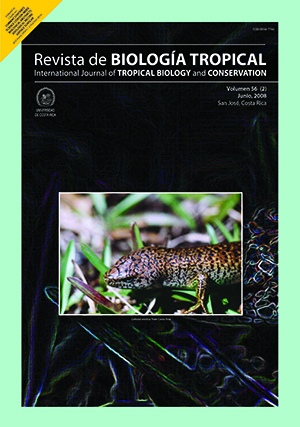Abstract
Unrefined cristalised cane sugar, obtained after the fil-tration and evaporation of sugar cane juice,is a nutritional product of traditional consumption in Costa Rica and other Neotropical countries. It has been used in the topic treatment of infected wounds, with satisfactory results even with some antibiotic-ressistant bacteria. We studied the microbiological quality of 50 commercial samples. The analyses included total aerobic and anaerobic bacteria plate count; aerobic and anaerobic spore count; mold and yeast count; total and fecal coliforms; and presence of Clostridium botulinum. The antimicrobial effect was tested for Staphylococcus aureus (ATCC 25923), S. epidermidis (UCR 2902), Pseudomonas aeruginosa (ATCC 9027), Escherichia coli (ATCC 25922), Salmonella enteritidis (ATCC 13076), Listeria monocytogenes (ATCC 19116) and Aspergillus niger (Asni 06). Most of the samples (76 %) presented counts lower than 100 CFU/g especially for sporulated forms (90 % lower than 20 CFU/g), the mold and yeast count was higher (38 % higher than 102 CFU/g), demonstrating the importance of these microorganisms in the spoilage of the product; 76 % of the samples presented fecal contamination; C. botulinum was not isolated with the methodology employed. No inhibitory effect was observed for A. niger, but all samples han an inhibitory effect over the other species, espe-cially for P. aeruginosa and S. aureus.
Comments

This work is licensed under a Creative Commons Attribution 4.0 International License.
Copyright (c) 2008 Revista de Biología Tropical






